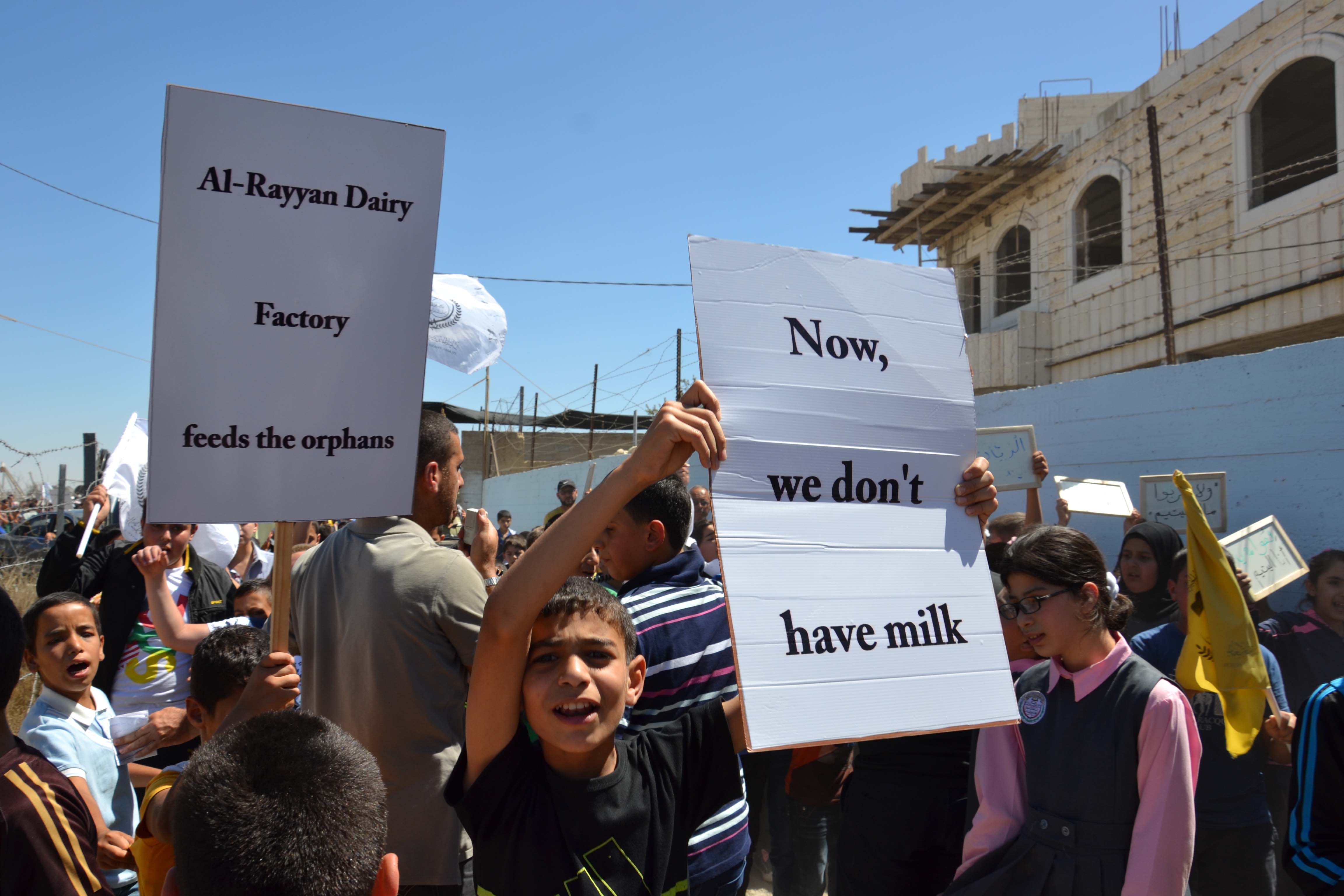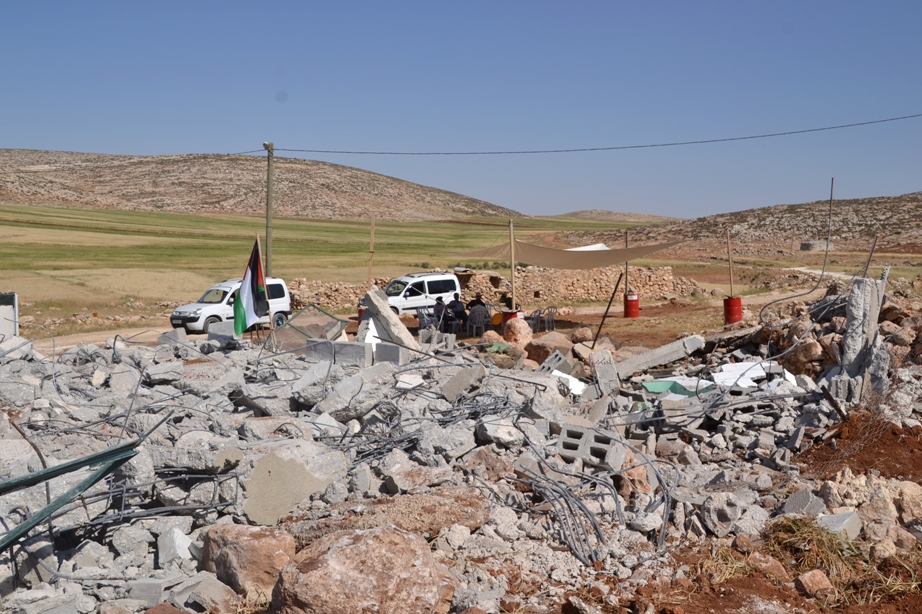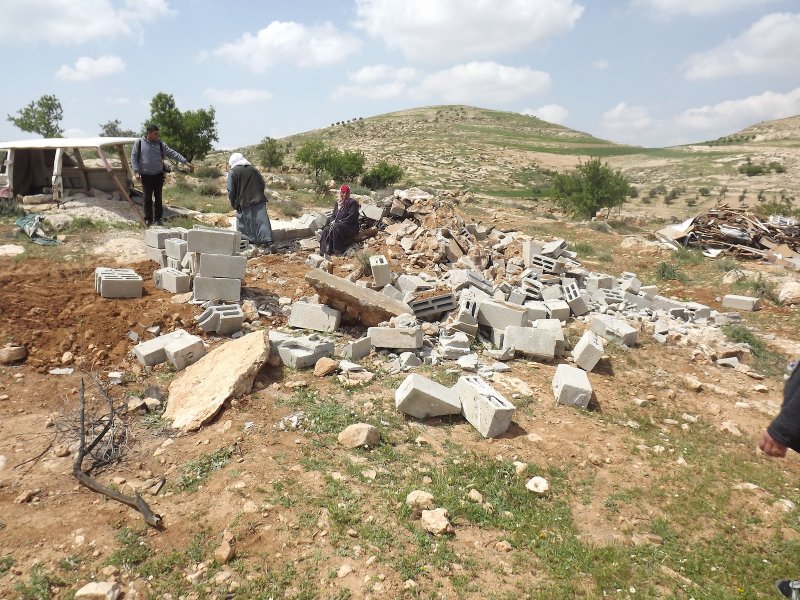Tag: Demolition
-
Orphans protest demolition of dairy factory
5th September 2014 | International Solidarity Movement, Khalil team | Hebron, Occupied Palestine Yesterday, 300 orphans staged a protest following the demolition of Al-Rayyan Dairy Factory, north of Hebron, which occurred in the early hours of 1st September 2014. The future of the children remains unclear as the two orphanages they live in, the Hebron Charity House…
-
UPDATED: House demolitions at Khirbet al-Taweel
30th April 2014 | International Solidarity Movement, Nablus Team | Khirbet al-Taweel, Occupied Palestine Update 15th May: On Monday the 12th of May, at 7AM, approximately 350 Israeli soldiers, two buses, and several military jeeps arrived at the remote village of Khirbet al-Taweel and ordered the inhabitants of two houses to remove all furniture in order to proceed with their illegal…
-
Six shelters demolished by the Israeli forces in the Palestinian village of At Tuwani
3rd April 2014 | Operation Dove | At-Tuwani, Occupied Palestine On April 2 the Israeli army together with some Border Police and District Coordination Office (DCO) officers demolished six shelters made of concrete in the Palestinian village of At-Tuwani. At 9:20 am a convoy made up of one bulldozer, two army Jeeps, three Border Police vehicles, and…



